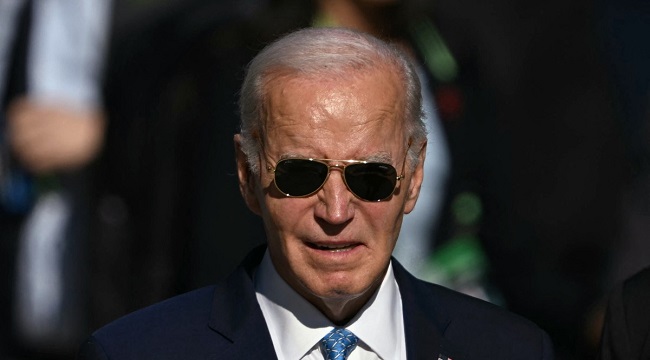U.S. Criticizes Nigeria's Import Ban: What It Means for Global Trade

U.S. slams Nigeria’s import ban, cites deepening trade tensions
Nigeria's ongoing prohibition on a large number of imported commodities has drawn criticism from the US, which sees the action as a significant trade barrier that hinders US exports and exacerbates economic tensions between the two nations.
The Office of the U.S. Trade Representative (USTR) recently declared that Nigeria's import limitations were one of the top ten unfair trade practices that American exporters worldwide had to deal with.
Key U.S. export interests like beef, poultry, pork, pharmaceuticals, fruit juice, and alcoholic beverages are among the 25 product categories that are prohibited.
In a tweet on its official X (previously Twitter) account, the USTR said, "These policies create significant trade barriers that lead to lost revenue for U.S. businesses looking to expand in the Nigerian market."
The Office of the U.S. Trade Representative (USTR) recently declared that Nigeria's import limitations were one of the top ten unfair trade practices that American exporters worldwide had to deal with.
Key U.S. export interests like beef, poultry, pork, pharmaceuticals, fruit juice, and alcoholic beverages are among the 25 product categories that are prohibited.
In a tweet on its official X (previously Twitter) account, the USTR said, "These policies create significant trade barriers that lead to lost revenue for U.S. businesses looking to expand in the Nigerian market."
Did you know? You can comment on this post! Just scroll down
The USTR began the critique as part of a larger campaign to draw attention to what it claims are unfair trade practices worldwide.
The program seeks to draw attention to the trade obstacles that American businesses encounter overseas, and the agency claims it is in remembrance of President Joe Biden's "historic trade action."
Nigeria now joins a group of nations that the U.S. claims have restrictive rules that prevent billions of dollars in potential U.S. exports, including India, Thailand, Kenya, Algeria, and the European Union.
It has a big effect on American companies, especially those in consumer products, healthcare, and agriculture.
The USTR stressed that U.S. exports of processed goods like fruit juice and spirits, as well as agricultural items like meat and poultry, are directly impacted by Nigeria's embargo.
The program seeks to draw attention to the trade obstacles that American businesses encounter overseas, and the agency claims it is in remembrance of President Joe Biden's "historic trade action."
Nigeria now joins a group of nations that the U.S. claims have restrictive rules that prevent billions of dollars in potential U.S. exports, including India, Thailand, Kenya, Algeria, and the European Union.
It has a big effect on American companies, especially those in consumer products, healthcare, and agriculture.
The USTR stressed that U.S. exports of processed goods like fruit juice and spirits, as well as agricultural items like meat and poultry, are directly impacted by Nigeria's embargo.
The list also includes medications and pharmaceuticals, which limits access for US healthcare organizations looking to establish or grow in Nigeria.
The USTR further stated that these regulations "undercut the global competitiveness of U.S. industries in addition to reducing export opportunities."
During the USTR campaign, other nations also faced criticism. For example, Kenya was criticized for enacting a 50% tariff on U.S. corn and onerous regulations that effectively excluded American corn exporters from the $50 million market, while Algeria's restrictions on generic pharmaceutical products and medical devices were referred to as "significant barriers."
Thailand and India were also criticized for limiting or prohibiting the import of ethanol from U.S. fuels, a move that the USTR claimed may cost American exporters more than $400 million in lost yearly income.
The USTR further stated that these regulations "undercut the global competitiveness of U.S. industries in addition to reducing export opportunities."
During the USTR campaign, other nations also faced criticism. For example, Kenya was criticized for enacting a 50% tariff on U.S. corn and onerous regulations that effectively excluded American corn exporters from the $50 million market, while Algeria's restrictions on generic pharmaceutical products and medical devices were referred to as "significant barriers."
Thailand and India were also criticized for limiting or prohibiting the import of ethanol from U.S. fuels, a move that the USTR claimed may cost American exporters more than $400 million in lost yearly income.
The conflict for Nigeria occurs when the nation attempts to increase domestic manufacturing and lessen its need on imports in the face of economic challenges including inflation and a lack of foreign money.
Critics counter that these prohibitions might be protectionist and endanger global relations and consumers.
According to trade experts, the escalating tensions may put more strain on commercial relations between the United States and Nigeria, especially if there are punitive actions or diplomatic pushback.
"It's a concern for U.S. trade policy going forward because the broader implication is that American exporters are being locked out of high-growth markets," USTR stated.
Critics counter that these prohibitions might be protectionist and endanger global relations and consumers.
According to trade experts, the escalating tensions may put more strain on commercial relations between the United States and Nigeria, especially if there are punitive actions or diplomatic pushback.
"It's a concern for U.S. trade policy going forward because the broader implication is that American exporters are being locked out of high-growth markets," USTR stated.
Article Posted 1 Month ago. You can post your own articles and it will be published for free.
No Registration is required! But we review before publishing! Click here to get started
One Favour Please! Subscribe To Our YouTube Channel!
468k
Cook Amazing Nigerian Dishes, Follow Adorable Kitchen YouTube Channel!
1.1m
Like us on Facebook, Follow on Twitter
React and Comment
Click Here To Hide More Posts Like This
Watch and Download Free Mobile Movies, Read entertainment news and reports, Download music and Upload your own For FREE.
Submit Your Content to be published for you FREE! We thrive on user-submitted content!
But we moderate!

















